Middle East
Magnitude 6.2 earthquake jolts Turkiye’s Istanbul | News
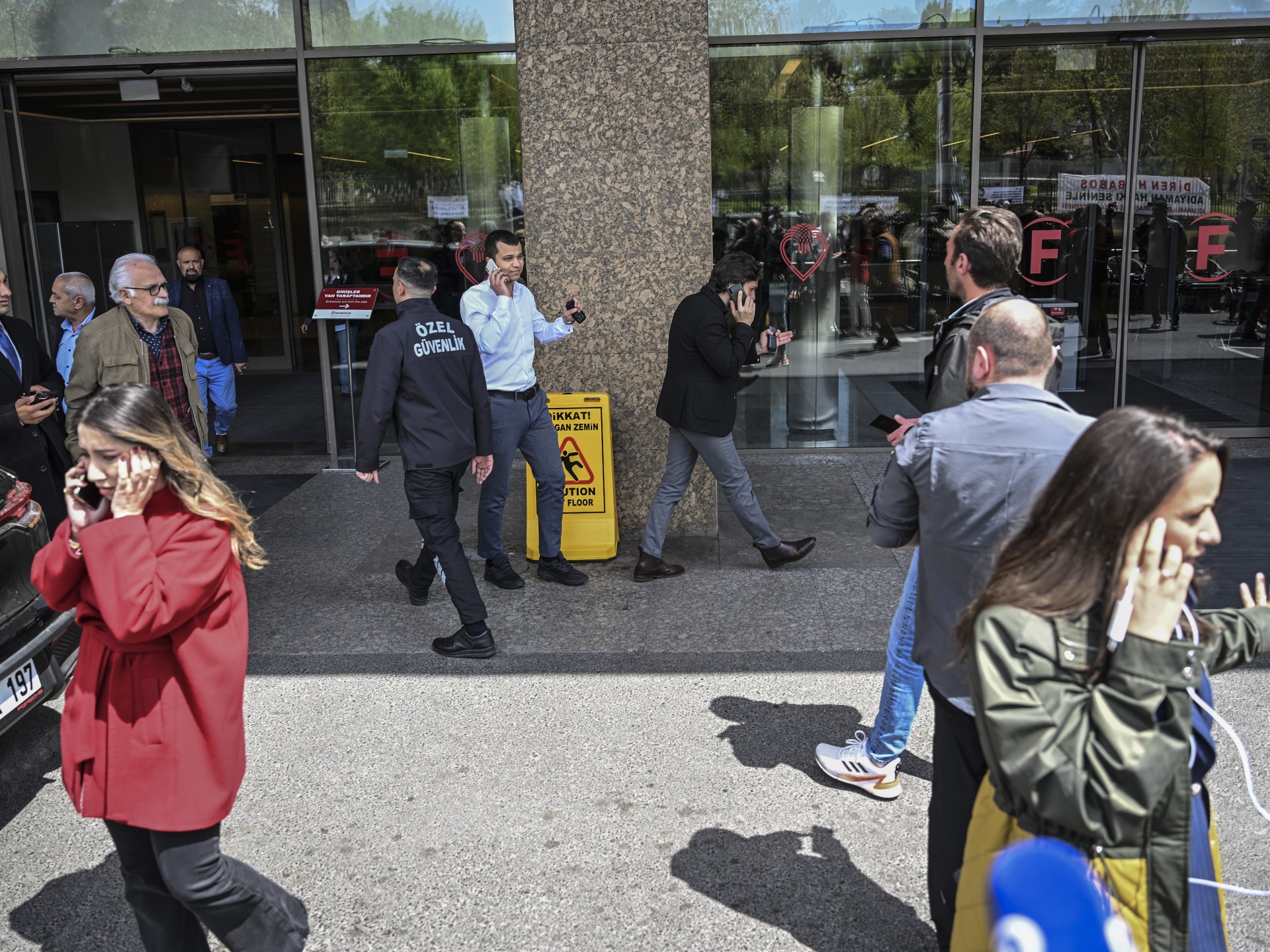
One person is reportedly injured from jumping off a balcony during the 6.2 magnitude quake.
A strong earthquake has hit Turkiye, causing buildings in the city of Istanbul to shake.
The quake, taking place at 12:49 [09:49 GMT] on Wednesday in the Marmara Sea off the coast of Istanbul’s Silvri area, registered a preliminary 6.2 magnitude, reports Turkiye’s Disaster and Emergency Authority (AFAD).
It was at a depth of 10km (6.21 miles), according to the German Research Centre for Geosciences (GFZ).
The quake was felt in several neighbouring provinces and in the city of Izmir, some 550 kilometres (340 miles) south of Istanbul. The initial quake was followed by eight others with magnitudes of 3.5 to 5.9.
As buildings shook in the city located on the European and Asian shores of the Bosphorus strait, people rushed onto the streets where crowds of worried-looking people stared at their mobile phones for information or made calls, an AFP correspondent said.
“I just felt earthquake, I’ve got to get out,” said a shaken-looking decorator rushing out of a fourth floor apartment where he was working near the city’s Galata Tower, who did not want to give his name.
Turkey’s Interior Minister Ali Yerlikaya told national TV network HaberTurk that authorities had not received reports of collapsed buildings, but that there had been reports of damage to buildings. Transport Minister Abdulkadir Uraloglu said initial inspections did not reveal any damage or adverse conditions on highways, airports, trains or subways.
Broadcaster TGRT reported that one person had been injured as a result of jumping off a balcony during the quake, which occurred during a public holiday in Turkiye, forcing authorities in Istanbul to cancel scheduled events.
Kemal Cebi, the mayor of Kucukcekmece district in western Istanbul, told local broadcaster NTV that there were “no negative developments yet”, but said that there were traffic jams and that many buildings were already at risk due to the density of the area.
In a post on X, Yerlikaya said emergency authorities have begun “field assessments” and offered well wishes to those affected.
AFAD warned people in the region against entering damaged buildings.
The tremors could be felt as far away as Bulgaria, according to the AFP news agency in the capital Sofia.
President Tayyip Erdogan said on X he was monitoring the situation and his office issued advice on what people should do in the case of further quakes.
Previous deadly quake
Turkey is crossed by two significant fault lines, and earthquakes are frequent.
The last tremor to be felt in Istanbul was in mid-November, when a quake caused brief panic but no damage or injuries.
A magnitude 7.8 earthquake on February 6, 2023, and a second powerful tremor that came hours later, destroyed or damaged hundreds of thousands of buildings in 11 southern and southeastern Turkish provinces, leaving more than 53,000 people dead.
Another 6,000 people were killed in the northern parts of neighbouring Syria.
While Istanbul was not impacted by that earthquake, the devastation heightened fears of a similar quake with experts citing the city’s proximity to fault lines.
In a bid to prevent damage from any future quake, both the national government and local administrations started urban reconstruction projects to fortify buildings at risk and started campaigns of demolishing buildings at risk of collapse.
Middle East
‘I don’t know where I will go’: Refugees run out of options in Tunisia | Migration News
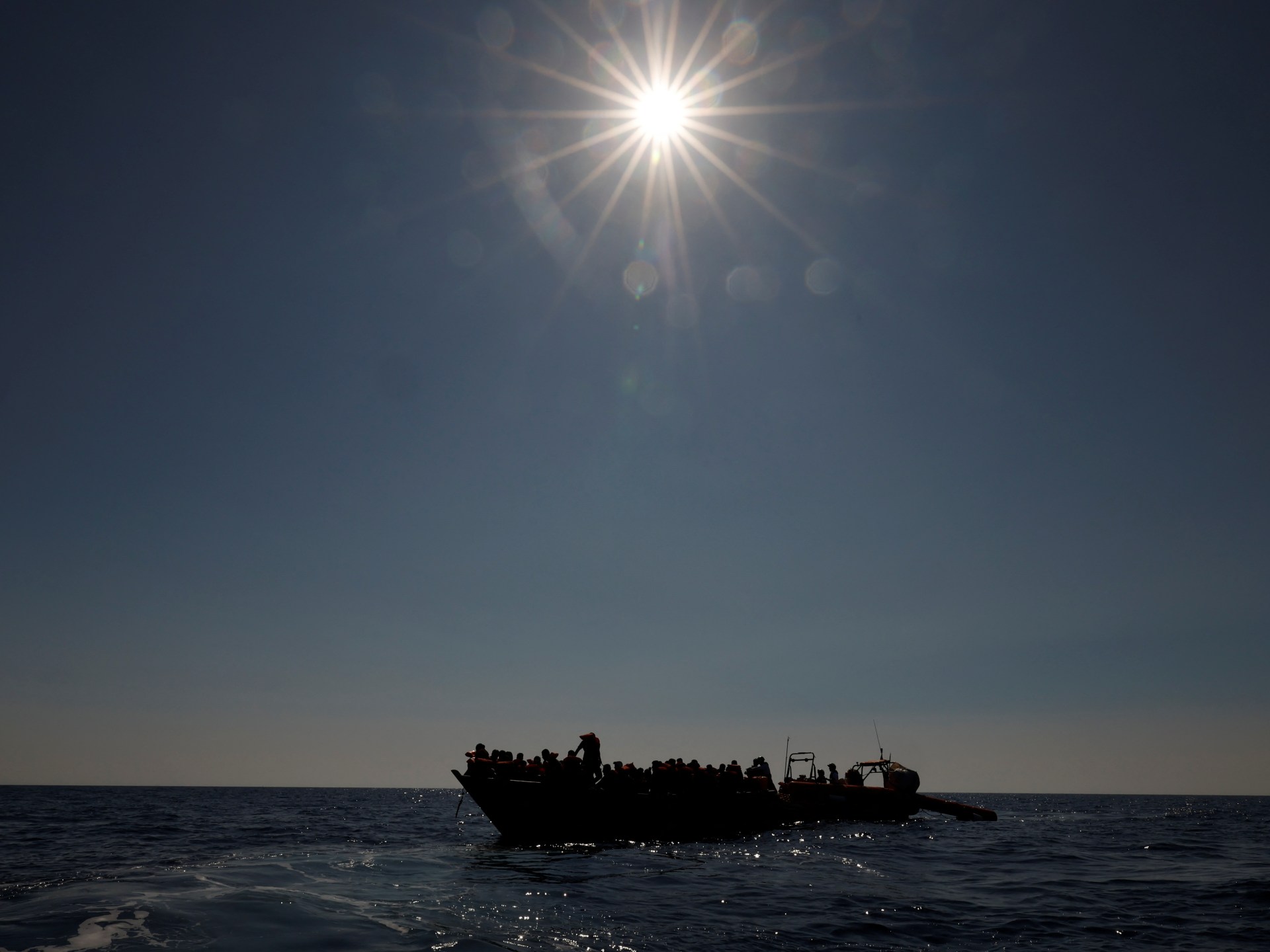
Patricia is sobbing over the phone.
About a dozen Tunisian policemen came to her camp this morning to tell her and the other refugees, asylum seekers and undocumented migrants living rough in the olive fields outside of Sfax, a coastal city in Tunisia, that they had to leave.
They gave them 48 hours.
The police didn’t tell them where to go, only that they couldn’t move to any of the 15 or so camps that have grown outside of the city since police first expelled its refugee population in September 2023.
Patricia, a nurse, had been working for months from her makeshift clinic at Kilometre 33 – named, like all the temporary settlements outside of Sfax, for its distance from the city.

Now she doesn’t know where she, or the old, the infirm, or the children and the nursing mothers who congregate around her clinic, will go. No one has any illusions about what will happen at the end of the deadline.
Other camps swept up in the three-week-old police operation to clear the olive fields have been demolished with heavy equipment and burned. Anyone resisting has been arrested.
“I don’t know what I will do,” she says. “I don’t know where I will go.”
Patricia and others had hoped their camp might be safe. The elders, or “stakeholders”, who settle disputes between camp residents, had contacted security officials, imploring them to spare the relatively quiet Kilometre 33.
It hasn’t worked.
Now, she must wait for either help or the arrival of the police.
A few months ago, she applied to the International Organization for Migration (IOM) to go home to Sierra Leone.
She is still waiting for a response.
Life as a midwife
Speaking to Al Jazeera a few days earlier, amid the clamour of her clinic, Patricia had described wanting to be a nurse since she was a girl living with her parents and younger sister in northern Sierra Leone’s Makeni.
She remembered her father, a driver for a mobile telephone network, taking her on trips from Makeni to the family’s village, where she would see how other children lived.
“I would take water and medicine to the children and tell them how important it was to take their medicine,” she said.
“There was a nurse there, Aisha, who I would help. She told my daddy: ‘Watch her. This one will be a nurse.’”

Patricia qualified as a nurse and ultimately decided to focus on midwifery.
“I’m still a nurse here. I have my licence with me,” she said, describing how she takes her qualifications with her to plead at nearby pharmacies for the medicines she needs to treat others at the settlement.
“My daddy was so happy when I graduated [in 2020]. He thought everything was going to be OK. I wanted especially to be a midwife. I liked the deliveries and working with children,” she said.
However, Patricia’s world ended on April 22, 2022, when her father was in a car accident.
Without the funds to pay for his treatment, the hospital where Patricia had worked for years refused to treat him, simply offering him a bed where, a few days later, he died.
Walking for days without water
A phone call from a friend after her father’s death changed her life’s course.
The unnamed man, from her family’s village, had made the journey through Tunisia to Europe seven years ago and was ready to help.
Patricia recalled the conversation. “He said: ‘You have nothing, how can you survive?’ and asked me if I would like to go on this journey [to Europe]. I said, I have no money, and he said it was OK. He would pay, but I could not fly. I would have to take transport and walk.”
Finding transport to take Patricia through Guinea and Mali was straightforward. But in Algeria, she had to walk.
“Sometimes we would walk for days, we had no water. I saw people die. Sometimes my friend would call me and give me courage. He would say: ‘You have to go on.’ But it was so hard.”

Eventually, in April 2024, the young woman who had never left her home country crossed into Tunisia and met the smugglers, or “bogan”, who took her to Kilometre 33, then to three failed crossings to Europe and, now, total uncertainty.
“[When I arrived] They said we’ll leave tomorrow,” she recalls. “I looked around and saw all the people with no food or shelter, and thought, if they can do it, I can do it for one night.”
But “then [a smuggler] brought the plastic [to set up a shelter] and I thought, why do we need this if it’s only for one night?”
“The next day, he said the weather was bad … every time, there was an excuse.”
More calls were made by Patricia and her friend, and more smugglers were contacted. In June, a little over two months after she arrived, she attempted the first of three failed crossings to Europe.
The third, just last month after a second attempt in October, saw her and others reach international waters, only to be pulled back by Tunisian security forces and dumped without phones, money or directions, in the desert.
“We were there for 16 days. I often felt like dying. There was no sign of rescue.
“All around us were bad people; the police, the Tunisian mafia [robbers who attacked, hoping they had something to steal],” she says.
There will not be a fourth crossing, she says.
Unclear ‘how human rights respected’
Throughout her time in Tunisia, the authorities have harassed people living in the camps outside Sfax.
Now, reportedly under the personal direction of President Kais Saied, they have promised to clear them all, justifying it as a response to Tunisian farmers’ complaints that they are unable to access their olive groves.
Announcing the programme in early April, a National Guard spokesperson said camps in the al-Amra and Jebeniana areas, north of Sfax, had already been cleared “peacefully”, with the support of the Red Crescent, the Health Ministry and the Civil Protection agency.
About 4,000 people of various nationalities had left one camp, they said, with an unspecified number “dispersed into the countryside” and health authorities taking charge of pregnant women and the infirm.
However, none of the refugees Al Jazeera spoke to after the operation knew of any assistance being offered to the vulnerable.
Tunisia’s Ministry of the Interior, which oversees both the police and the National Guard, has yet to respond to Al Jazeera’s request for comment.
“[Authorities are] trying to frame their latest operation, which was accompanied by a propaganda campaign, as … supposedly respecting human rights,” Romdhane Ben Amor, of the Tunisian Forum for Economic and Social Rights (FTDES), said.
“It’s unclear how human rights are being respected with bulldozers, heavy machinery and actions like burning the small cloth or plastic tents of migrants,” he said.

Destination unknown
The current location of many of the people expelled from the camps remains unclear.
Al Jazeera spoke to some who say they are still wandering the olive fields, hiding from the police.
Ben Amor suspects others have been bussed to the border with Algeria and abandoned in the desert, something that has happened before.
The question of where these people may have ended up, or where Patricia may go, has not been posed by the national press, which is more focused on what Ben Amor describes as “propaganda” justifying bulldozing camps.
Speaking to a radio station earlier this month, Member of Parliament Tarek Mahdi channelled the president’s claims that Tunisia was in “imminent danger”, made in February 2023, as “births among migrant women have reached 6,000 births in a short time”.
Patricia, on the other hand, just wants to know where she and her patients will sleep in two nights’ time.
She cannot face continuing her journey to Europe, and officials have yet to contact her about returning home.
“Why do they want to hurt us?” she asked. “We are humans, too.
“All that is different is the colour of our skin.”
Middle East
‘I grabbed my cat and ran’: Istanbul panics as earthquake hits | Earthquakes News
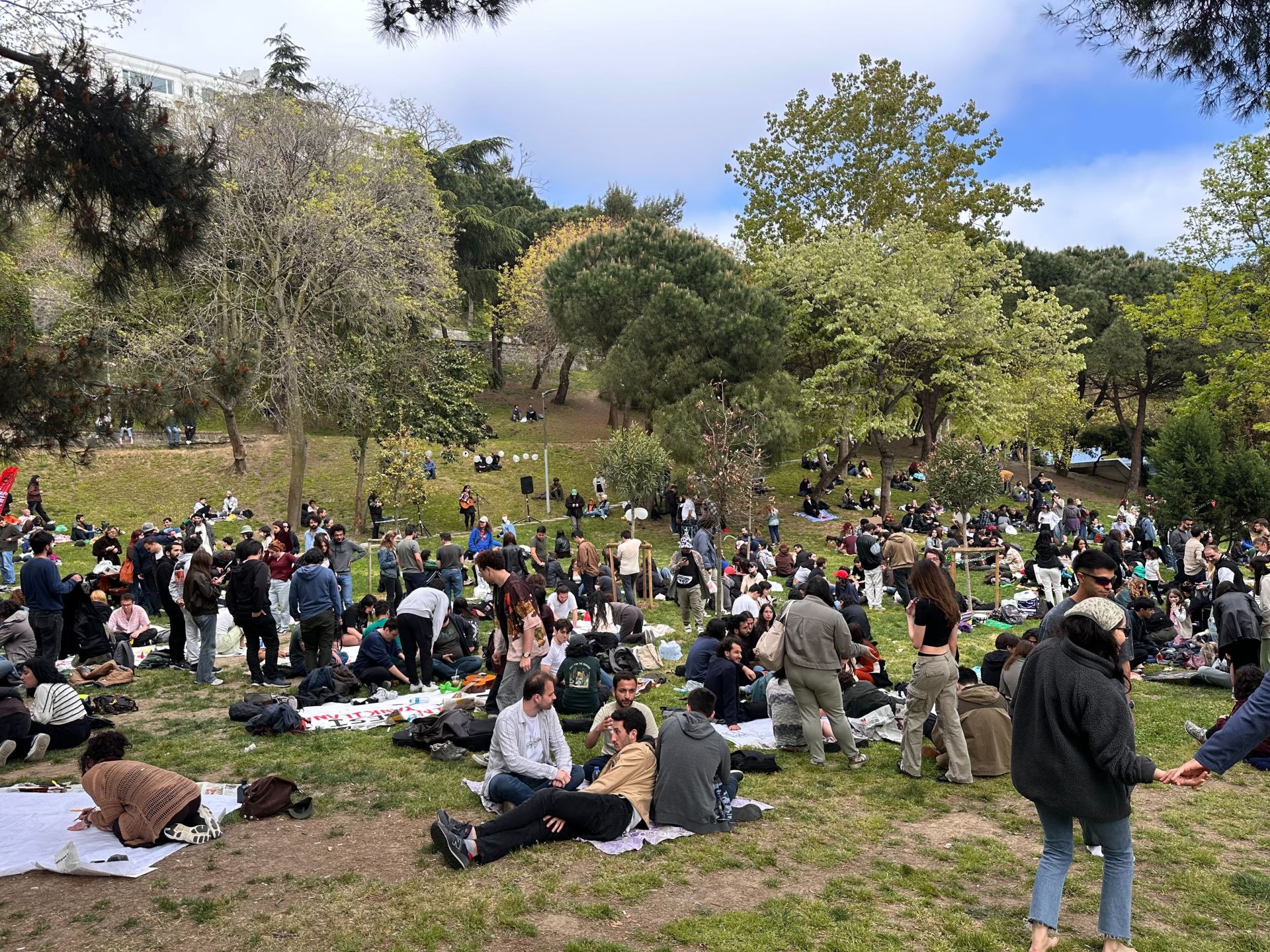
Istanbul, Turkiye – For five terrifying seconds, buildings shook, shelves toppled, and panic rippled through Istanbul, Turkiye’s cultural and economic heart.
The ground beneath Istanbul trembled at 12:49pm (09:49 GMT) on Wednesday, sending millions scrambling into the streets as a magnitude 6.2 earthquake struck in the sea off the city’s western coast. Several smaller aftershocks have followed, with magnitudes of between 3.5 and 5.9.
No major damage was reported according to authorities, although Istanbul Governor Davut Gul said that at least 151 people were injured after jumping from heights to escape in a panic.
![People camp out in Macka Park, Nisantasi, as they are scared to go back home following the aftershocks [Elis Gjevori/Al Jazeera]](https://www.aljazeera.com/wp-content/uploads/2025/04/IMG_4487-1745413224.jpg?w=770&resize=770%2C578&quality=80)
The quake, centred near Silivri in the Sea of Marmara, revived painful memories of past disasters and left residents grappling with fear over what might come next.
In the upscale Nisantasi district, 69-year-old Bilge was at home when her building suddenly rattled.
“People in the building screamed ‘earthquake!’ and ran outside. My hands wouldn’t stop shaking,” she told Al Jazeera, describing crowds spilling onto the sidewalks, clutching phones to check on loved ones.
Nearby, coffee shop workers rushed out into the street. “We were just calling our families,” one said, as aftershocks continued to ripple across the city.
The earthquake coincided with National Sovereignty and Children’s Day, a public holiday, leading to the cancellation of events and heightened public anxiety.
Parents were seen walking through the streets with their children still dressed for celebrations.
“I was on the seventh floor, just about to make lunch,” said Zeynep Karatas, 41, a freelance designer from Sisli who had come to Nisantasi’s Macka Park with hundreds of others who wanted the safety of an open space.
“The walls in my building cracked, the glasses clinked. I didn’t wait – I grabbed my cat and ran,” said Karatas.
She joined dozens of neighbours already gathered outside. Some clutched pets, others their phones, trying to contact relatives. “We all ran out together. Strangers were helping elderly people down the stairs. I felt like crying,” she added.
Some in the park are anxious, and say they will stay awake as long as possible at night. Others are planning to pack a small bag in case they need to leave their home quickly.
Turkiye’s emergency authority AFAD has warned residents to stay alert, as aftershocks can continue for hours, even days.
History of earthquakes
While initial reports indicated little structural damage, the psychological impact was immediate.
“Everyone was talking about 2023,” said Baran Demir, 62, referring to the devastating earthquake that killed more than 53,000 people in southern Turkiye, and another 6,000 people in Syria. “You could see it on people’s faces, that same fear. My building didn’t collapse then, but the memory came rushing back.”
In Nisantasi, 35-year-old cafe worker Mehmet was helping usher customers outside when the aftershocks hit. “Everyone stayed calm, but the mood shifted fast. We just kind of held our breath. We thought this was the big one we’ve been waiting for.”
Residents of Istanbul have long feared a major earthquake hitting the city, as has happened in the past. Earthquakes with a magnitude greater than 7 have hit Istanbul in 1509, 1766 and 1894, causing thousands of deaths and large-scale destruction. A 1999 earthquake in Izmit, approximately 100 kilometres (62 miles) east of Istanbul, killed more than 17,000 people.
The city lies near the North Anatolian Fault, a major fault line that regularly triggers earthquakes.
Improved building codes in recent decades are designed to counteract the effect of earthquakes in the densely populated city, but many are still worried.
“I’m scared to sleep tonight,” said Gokhan, an elderly man who lives alone. “What if there are strong aftershocks tonight, I can’t move quickly,” he says with a wry smile. “If it’s my time, it’s my time.”
Middle East
Gaza is burning. UK NGOs must abandon failed diplomacy and fight back | Israel-Palestine conflict

Israel’s Defence Minister Israel Katz declared last week that “no humanitarian aid will enter Gaza”, effectively announcing his government’s intention to continue the collective punishment of the Palestinian enclave’s battered and besieged civilian population in blatant violation of international humanitarian law.
“Blocking this aid is one of the main pressure levers preventing Hamas from using it as a tool with the population,” he went on to say, “No one is currently planning to allow any humanitarian aid into Gaza, and there are no preparations to enable such aid.”
Many leading NGOs and international institutions, such as Amnesty and Human Rights Watch, have long identified Israel’s weaponisation of aid in Gaza as an act of genocide. In response to Katz’s most recent comments, they once again condemned the Israeli government’s genocidal policies and called on Israel’s Western allies to take action to enforce international law.
Such condemnations and calls to action, however, are clearly failing to produce the desired results. After 18 devastating months, Israel is still bombing, shooting at, displacing and starving Palestinians, while openly declaring its intention to continue with these crimes for the foreseeable future. And it is still doing so with the full political, military and diplomatic backing of its Western allies, including Britain.
This is why we believe it is time for British NGOs to change tack.
For the past 18 months, many of us working in the human rights and aid sectors in Britain made repeated requests to our government to do the bare minimum and enforce the basic tenets of international law on its ally, Israel. We campaigned, we lobbied, we engaged, and we explained. We showed the evidence, pointed to the law, and asked our leaders to do the right thing. Our pleas fell on deaf ears. We’ve been met with nothing but indifference.
To this day, Keir Starmer’s government continues to trade with and even sell arms to the Israeli government, despite being aware of the blatant crimes Israel commits day after day in Gaza and in the rest of the occupied Palestinian territories. It still considers Israel a key ally despite knowing that the International Court of Justice (ICJ) is reviewing an allegation of genocide directed at its “war” in Gaza and that there is an International Criminal Court (ICC) arrest warrant out for its prime minister, Benjamin Netanyahu, for various war crimes and crimes against humanity.
Just last week, Britain’s Foreign Secretary David Lammy held talks with Israel’s Foreign Minister Gideon Sa’ar – the top diplomat of a government under investigation for genocide – while he was on an unannounced visit to London. The Foreign Ministry confirmed that Lammy met Sa’ar to “discuss Gaza and other pressing Middle East issues”, during what it described as the Israeli minister’s “private visit to the UK”.
This is unacceptable. British government officials should not be having any public or private meetings with senior ministers from a country accused of the most heinous crimes recognised in international law. They must not be “discussing Gaza and other pressing Middle East issues” with Israeli leaders while Israel continues to bomb refugee tents, kill journalists and medics, and block the delivery of aid to a population under relentless siege.
No politician can claim ignorance of what is happening. Tens of thousands of Palestinians have been killed. Many more have been maimed, traumatised and displaced. Hospitals, clinics, refugee camps, schools, universities, residential neighbourhoods, water and food facilities have been destroyed. Hundreds of aid workers – both local and foreign, including Brits – have been targeted and killed, for the crime of trying to help Palestinians.
The British public at large is horrified by what Israel is doing in the occupied Palestinian territories, and they want it to stop. We have seen this in various opinion polls and on the streets in the form of enormous protests.
And yet, our government is intransigent. The meetings that so many aid and human rights organisations had with ministers and senior civil servants – difficult to get in the first place – have had no impact. Starmer’s government is impervious to all the normal lobbying and campaign tools we employ. It is refusing to hold Israel to account for its blatant violations of international law.
It is time for us to try a different strategy. We cannot continue to engage with the British government as if we are merely having a policy disagreement. This is not a routine case of our government refusing to pay sufficient attention to a conflict or crisis, due to different priorities or conflicting interests. This is not a disagreement we can overcome through engagement and debate. Britain’s leaders today are not only ignoring the most heinous war crimes being livestreamed on our screens on a daily basis, but also insisting on supporting the perpetrators of these crimes – diplomatically, politically and militarily – against warnings and desperate pleas from the human rights sector.
We believe the only way NGOs can actually make a difference in this space is by ending all engagement with the government on this issue. By continuing to talk to the government, we are not helping Palestinians on the ground or our colleagues working with a target on their backs in Gaza. We are merely providing the government with an opportunity to say it is doing something to help those stuck in Israel’s kill zone.
We must not participate in processes and engagements that will be used to whitewash Britain’s complicity in Israel’s crimes.
Rather than trying to talk to a government that has no intention of listening, we should support protests, boycotts and legal efforts to hold Israel’s leaders to account for their role in the genocide. The British government may not be willing to pay attention to our campaigns and reports, but they will eventually pay attention to the ever-growing protests on the streets and the legal decisions against their Israeli allies in British and international courts. At this point in time, continuing a dialogue with the government will only turn us into instruments of British foreign policy.
There is only one way forward. We must loudly name what’s happening in Gaza – a genocide. We should name the crime, underline our government’s complicity in it, and focus our efforts on elevating the voices of our Palestinian colleagues on the ground. Meetings with ministers and civil servants behind closed doors will not make a difference, but informing the public of what is actually happening in Gaza, with support from our government, just may.
We know that our actions cannot magically put an end to the genocide in occupied Palestine, but they can still make a difference. We can add to the pressure on those who have the power to stop the carnage, which is so needed. Additionally, stopping our fruitless engagements with the government will allow us to reorient our work, reconnect with the wider public from whom we should draw our legitimacy and strength, and focus our energy on actions that can make a real difference for people in need.
The actions we, as members of the aid and human rights sector in Britain, take now, do not only matter to those in Gaza. The way our government, our leading institutions and our society at large deal with the genocide in Gaza will set a precedent for how they will deal with crises and emergencies in the future – at home and abroad. It will determine whether our country will be a force that works to uphold human rights and international law, or one that tramples on them whenever convenient. Today, we must all fight for what is right, and show our government that indifference is not acceptable in the face of genocide, lest we ourselves become complicit. History will judge how we respond to this moment.
The views expressed in this article are the authors’ own and do not necessarily reflect Al Jazeera’s editorial stance.
-

 Europe2 days ago
Europe2 days agoSimone Biles, Mondo Duplantis win big at 25th Laureus World Sports Awards
-

 Sports2 days ago
Sports2 days agoShannon Sharpe: Pro Football Hall of Famer and podcast star sued for sexual assault and battery
-
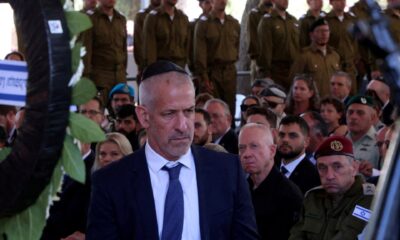
 Middle East1 day ago
Middle East1 day agoIsraeli spy chief accuses Netanyahu of demanding illegal operations | Politics News
-

 Sports2 days ago
Sports2 days agoSharon Lokedi smashes women’s course record at the Boston Marathon, John Korir wins men’s race
-

 Africa2 days ago
Africa2 days agoKenyan runners win both male and female races at Boston Marathon 2025
-
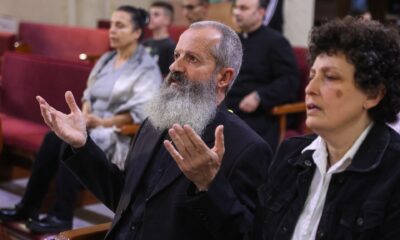
 Conflict Zones1 day ago
Conflict Zones1 day agoGaza’s Christians mourn death of Pope Francis | Israel-Palestine conflict News
-

 Education2 days ago
Education2 days agoInvoluntary collection of defaulted student loans to resume, Education Department says
-

 Sports2 days ago
Sports2 days agoMavs GM Nico Harrison admits he was surprised by Luka Dončić’s level of popularity with fans following shock trade to Lakers



